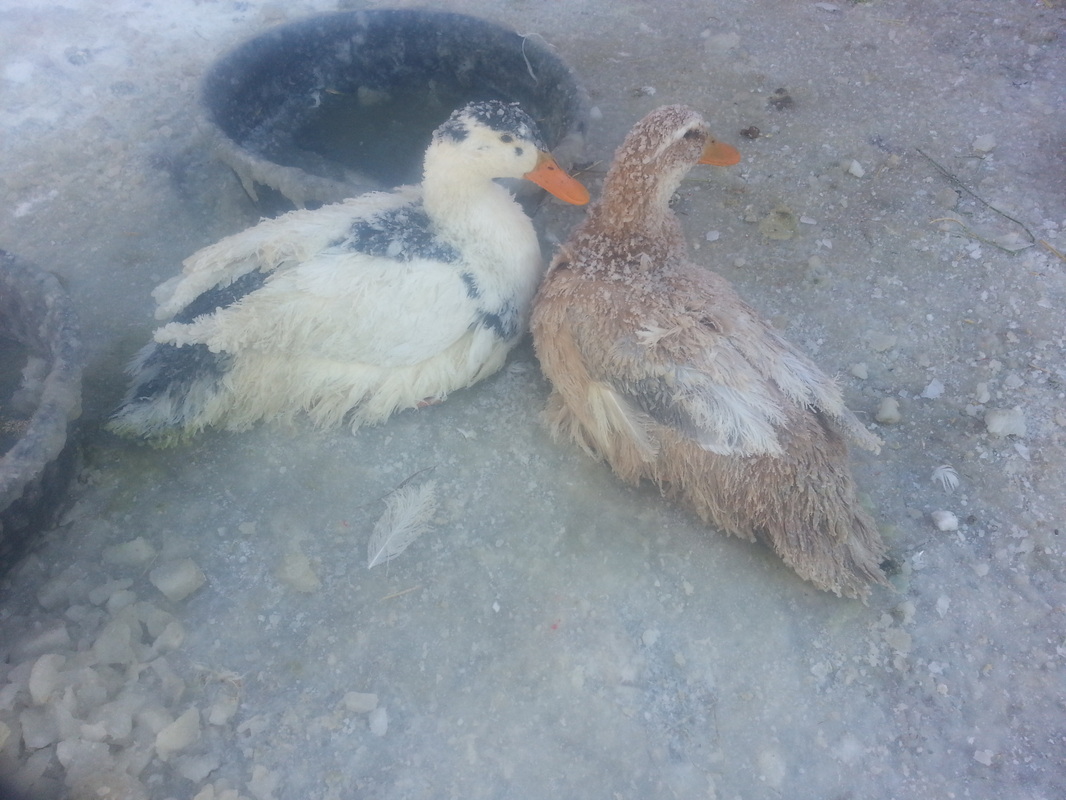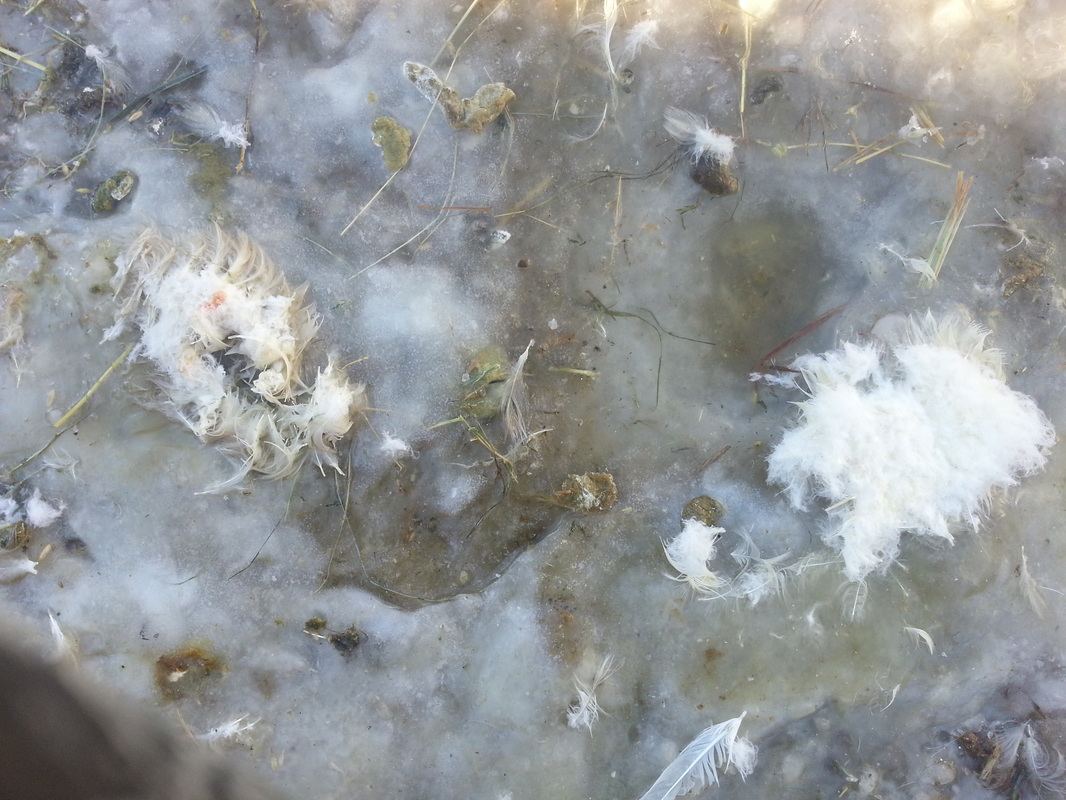The dogs curled up in the hay last night and slept under the stars. For Harley, the oldest dog, who suffered some leg injuries in his youth prior to coming to the farm, the cold is brutal and he suffers in pain, so he is invited in and sleeps in the porch. Only last night, he asked to go back out and slept outside. He is in this morning, though, warming his aching bones. Ofcharka came in for about ten minutes and wanted to go back outside. They do have dog houses around the farm and a straw bale insulated dog fort, which they only go into if there is a blizzard.
The goats were cold too. Cocoa was alone in the small shelter for some reason, so I took her to the bigger shelter where the rest were, plus two rams. The sheep do help to keep the shelter warmer. The Nubian ear tips will freeze in the frigid weather. Their barn is the warmest, but not insulated, though if the ram lambs also go inside, their body heat does help to raise the temperature. Today, new straw will be laid down in some of the shelters. Yesterday, the ducks and geese and chickens got new straw. Fresh bedding does help keep the animals warm too, but a bedding pack that has begun to compost is naturally warmer.
One problem in the very cold weather is the water. It freezes as soon as it is poured. The animals who need fresh water and do not eat snow, need to drink immediately or the water turns to ice. The temperature of the ground is the same as the air, so at -35, water freezes immediately. The duck'f feathers will freeze to the ground if they are wet and stop to rest on the frozen icy ground. That happened yesterday with two ducks frozen in place. Hot water was poured on the ice several times, but it did not melt the ice quickly enough. The ducks, however, sacrificed their breast down feathers to free themselves, which is not a good thing. Without the down on their breasts, they will be subject to becoming cold, because they tuck their feet up into their feathers and sleep on their breasts. Poor little duckies. Today, they will only get water in a bucket and as soon as it is too frozen, I will dump it out before anyone's head freezes in the ice. The first year I was here, a duck froze to the water tray, feet solid in the ice. I had to take the tray and the duck inside and thaw the ice to free her. It was more difficult to thaw the ground and free the ducks who had frozen to it. Left there, they would die in a few hours.
Farming in the north is hard. In Texas and North Carolina, the coldest it gets is always still above zero and though they may have a skiff of frozen water, they will never have animals frozen to the ground or feet frozen solid. It is inhospitable here, not for the faint of heart, yet people have been farming in this region for centuries and somehow the animals mostly have survived. It is not often, but even cows and horses will freeze solid standing still. The young are the most vulnerable, without the heavy coats and thick hides that the adults have. All the animals on the Fat Ewe Farm have good shelters with lots of bedding, but no additional heat. The fittest make it through the winter. I suppose it is natural selection. The strong survive and the weak perish and the strong impart their genes to the next generations and so on. Nature can be cruel, so it seems, but smart too. Coddling the weak does not do the future generations a good service.
The frozen north is not an easy place to live for humans either. Plumbing and water lines freeze, power outages are common, workers must bear the frigid temperatures and do repairs outside, and the farmers must care for their animals outside too. Brrrr. Life can be harsh. I know what was meant when survive the winter was said. And we will.



 RSS Feed
RSS Feed